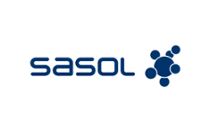The 'global dependence shift' Stock Picks
The dependence shift
The tensions between Russia and Ukraine have increased over the past few days. Globally, nations have taken measures to bring the invasion to an end.
As sanctions rise from political tensions, we look into three companies that may benefit from commodity prices in potash, oil, and coal.
 Kore Potash PLC (KP2)
Kore Potash PLC (KP2)
Fertilizer/Potash
After the country was being accused of fraudulent presidential elections and human rights violations in 2020, Belarus was faced with sanctions on its potash mining and processing industry from various nations, including the United States.
According to Alexis Maxwell, an analyst from Green Markets, a company owned by Bloomberg: "Global potash contracts have settled at the highest price since 2008, ensuring another year of pricey inputs for farmers and strong earnings for producers... U.S. sanctions on Belarus eliminated a key competitor."
Belarus is one of the largest exporters of potash globally. During the recent global tensions, the country has shown support for Russia, further acting as the field of operations for the Russian military to invade Ukraine. This decision was followed by talks of sanctions being increased by the EU on Belarus. On the other hand, according to Reuters, Russia is among the top global players in fertilizer exports, which amounts to 13% of the worldwide supply.
Fuelling the potash market, the sanctions have added strain to one of the most significant global exports of potash. As a result, with the global shift from Western dependence, Kore Potash is among the companies that have been making strides in the potash market as the company expanded in Congo through its Kola and DX Potash projects.
As of 31 December 2021, Kore's cash balance was $11.1 million. Funds invested in potash-related explorations through the Kola and DX projects amounted to $1.11 million. Positioning itself in the potash market, distribution channels for Kore’s fertilizer include Colombia, Nigeria, Morocco, South Africa, Spain, Senegal, Guinea, and Brazil – one of the largest importers globally. In April 2021, Kore raised $14.1 million through an equity issue for its Kola project.
To explain the importance of the Kola project role, the company stated, "Kore has the potential to be the lowest-cost supplier of potash to Brazil… Kola is a world-class asset with long life production potential."
Kore’s Kola project has a potential competitive advantage in Brazil as the production plant is closer to that country.
While there were no mining activities during the period, in line with its targets, Kore aims to receive a proposal and study report for the Kola potash project and proceed with financing the project construction by 31 March 2022. Kore Potash is currently trading at R0.20 per share as of writing.
Login to view Kore Potash PLC (KP2) shares
on EasyEquities
 Sasol Limited (SOL)
Sasol Limited (SOL)
Oil/Fuel
Are you hearing a lot about inflation? Then you will surely hear about oil prices in the mix as this determines the fuel prices, which directly impacts products and services through transportation and production costs.
Trading slightly below its 2019 highs of around R400 per share, Sasol has been among the companies that investors have had an eye on. This is after the company's share price took a knock to an all-time low of around R20 per share as oil prices hit an all-time low after the first global lockdown restrictions in March 2020.
Fast forward into 2021 and 2022, Sasol was trading at around R380. This comes after the strong position in the oil/fuel market. For one, during the period – aside from demand that rose from eased restrictions – tensions between Ukraine and Russia have affected the oil market, hindering future supplies globally.
By 31 December 2021, Sasol was reaping the benefits of high prices in the oil market as demand continued to rise before the geopolitical tensions, notwithstanding an increase in capital expenditure, which was mainly driven by the phased shutdown at the Secunda operations. Sasol's cash generated from operations increased to R20.3 million, representing a 73% increase when compared to the previous period. According to the company:
"Earnings before interest and tax totaled R24.3 billion, an increase of 12% compared to the prior period… This performance was underpinned by a strong macroeconomic environment with higher crude oil prices, refining margins, and chemicals prices, coupled with increased demand."
Core headline earnings, which looks at the company's core day-to-day business operations, increased by over 100% to R22.52 during the period, compared to R7.86 in the previous comparative period (PCP). Despite the decline in gas operations turnover, Sasol experienced an improvement across all the other businesses, with its fuel turnover increasing from R41 billion to R27 billion vs the PCP.
Diversified in geolocations, Sasol has operations in South Africa, West Africa, the United States, the United Kingdom, France, Belgium, Germany, Italy, the United Arab Emirates, Singapore, Hong Kong, China and Japan.
The company’s stock price moves relative to oil prices, which were hovering at their all-time high range of around $90 - $100 as of writing, due to the recent announcement of the U.S tapping into emergency reserves to tackle the high oil prices. This is because Russia's exclusion in the global economy affects global supply, as the country is one of the leading global exporters.
Login to view Main Sasol Limited (SOL) shares
on EasyEquities
 Thungela Resources Limited (TGA)
Thungela Resources Limited (TGA)
Coal/Energy
Since Russia supplies coal to Europe, as sanctions come into play, this has an impact on coal supply, further motivating a dependence shift for coal supply. Writing on the effects of the geopolitical risks, Clyde Russell, a Reuters columnist, said: "This is likely to tighten global seaborne coal markets, especially if Japan, which bought 1.18 million tonnes of Russian coal in January, seeks to buy from other suppliers." For European utilities, a halt in trade will mean "they will be scrambling to buy cargoes from the United States, Colombia, and South Africa."
According to Mining[DOT]com: "As an energy supply crunch pressured politicians across Europe this winter, countries took steps to increase coal consumption."
For Thungela, it's been a bullish ride as the group reaps the benefits of being an independent coal producer, rallying behind the increase in coal prices. Within a period of fewer than 12 months, the group has seen its share price increase by 500% to R150 per share, as coal prices remain volatile with threats of geopolitical factors affecting global supply sentiments while demand remains high, especially as we approach our winter season.
Preparing to release its year-end results (31 December 2021), the group expects earnings per share to be between R60 and R66, compared to the loss per share of R5.31 PCP. This comes after the group reported an increase of 506% in revenue to R10 billion by 30 June 2021 from R1.65 billion PCP. Profits from operations during the period were on R990 million from R52 million PCP, representing an 1803% growth. Earnings soared to R3.13 from a loss per share of R1.93. Thungela’s net cash during the period was R3.13 billion.
In a letter to shareholders on the upcoming financial results, Deon Smith, Thungela CFO, said: "We are in a sound financial position, and the group has adequate resources to deliver on our strategic capital allocation objectives. "With this in mind, the group expects to progress the studies of our key life extension projects, including Elders and the Zibulo North shaft, over the coming months and to be in a position to provide more detailed feedback at the group's full-year annual results presentation."
Login to view Thungela Resources Limited (TGA) shares
on EasyEquities
Informed decision
The political tensions fuel what I'd call the "global dependence shift" – a shift where the global economy is less dependent on the West. This, for investors, may create a volatile environment within the short to medium term.
Consumers may face price increases over a period as the sanctions come into effect, impacting the demand in the long term. This shift may eliminate competitors while creating a conducive environment for small and emerging companies that may contribute to the economic supply to fill the demand gap.
New to investing
and want to know more about our other stock picks?
Read: My Portfolio vs. the Apocalypse
Sources – EasyResearch, Kore Potash PLC, Sasol Limited, Thungela Resources Limited, Bloomberg, Mining[DOT]com.
Follow Cay-Low Mbedzi

Any opinions, news, research, reports, analyses, prices, or other information contained within this research is provided by an employee of EasyEquities an authorised FSP (FSP no 22588) as general market commentary and does not constitute investment advice for the purposes of the Financial Advisory and Intermediary Services Act, 2002. First World Trader (Pty) Ltd t/a EasyEquities (“EasyEquities”) does not warrant the correctness, accuracy, timeliness, reliability or completeness of any information (i) contained within this research and (ii) received from third party data providers. You must rely solely upon your own judgment in all aspects of your investment and/or trading decisions and all investments and/or trades are made at your own risk. EasyEquities (including any of their employees) will not accept any liability for any direct or indirect loss or damage, including without limitation, any loss of profit, which may arise directly or indirectly from use of or reliance on the market commentary. The content contained within is subject to change at any time without notice.
Subscribe To Our Research Portal
Search all research
Let Us Help You, Help Yourself
From how-to’s to whos-whos you’ll find a bunch of interesting and helpful stuff in our collection of videos. Our knowledge base is jam packed with answers to all the questions you can think of.



